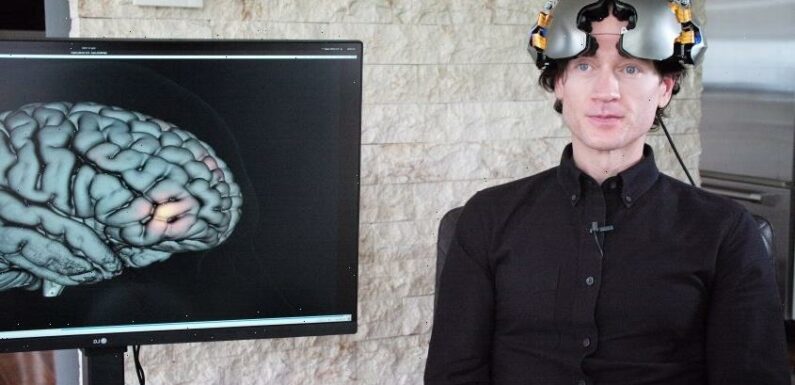
Werner Herzog turned 80 on September 5—the last day of the Telluride Film Festival, his abiding favorite film event, which he’s been attending for decades—and, of course, he has a new film to mark the occasion; you’d expect nothing less. It’s a documentary—he’s made many—and it shows the filmmaker as youthfully curious as ever, as he turns his camera on an impressive array of scientists, doctors, researchers, wealthy executives and the odd lawyer and politician to investigate the status of progress of neurological science. It’s an enormous field of endeavor, one that seems certain to become far bigger than is now is, more central to fundamental ways in which we lead our lives and more knowledgeable about how different species interact with one another. It’s an up-to-date primer on the subject, wider than it is deep, but engaging and illuminating always.
And, by the way, Herzog had a novel—The Twilight World, his first—published this year, finished another documentary, The Fire Within: A Requiem for Katie and Maurice Krafft, and is preparing his latest fiction film, Fordlandia, to go into production soon for television. So what did you get done today?
At the heart of the study of the brain are profound questions such as these: How does consciousness arise out of the brain cell? What is thought? What is consciousness? What are the pros and cons of reprogramming people’s brains, the potential for thought control? How might people and animals understand and communicate with one another in ways we can’t imagine now? How can brain stimulation combat depression and reduce the feeling of pain? How far along are advanced forms of telepathy in the form of direct brain-to-brain communication? Do fish have souls? Can thoughts be synthesized and translated into recognizable speech? Will the blind one day be able to see by different means? What lies ahead with fiber optics being introduced into the brain? Will we be able to maintain autonomy over our thoughts? Will governments soon be able to assert control via brain implants?
At stake here, among many other matters, is the mystery of life. Assuming the planet holds together long enough, it seems all but inevitable that human understanding and resultant greater control over the brain and mental communication will take place, a development that will radically alter almost everything in life. There is tremendous fascination with the many possibilities this has to offer, but also great danger; one human rights lawyer, Jared Genser, states here that misuse of neurotechnology is already a huge concern, beginning in the realm of privacy.
By contrast, although it’s not well articulated in the film, we learn that Chile, of all places, has just rewritten its constitution to include far greater protection of human rights, including a right-to-privacy provision that would prevent the kind of abuses of great concern to those afraid of infringements via technology.
Some of the interviews prove uneventful, more like amiable social calls than revealing visits with deep thinkers. Nonetheless, most of the speakers have something to offer; we learn of how one researcher located the precise location of fear in the brain; how a African gray parrot learned how to imitate other animal noises to communicate; the effect of music on worms; how tests have proved that young children would rather watch cartoons—and by extension invented reality—than the real thing, and how mice prefer to chase virtual crickets than real ones; how scientists have begun developing deep brain stimulation to combat depression and pain; and about success with implants in combatting Parkinson’s disease.
And there’s so much more: New initiatives have shown major advances in telepathy, or direct brain-to-brain communication involving computers; other research digs into such questions as, do fish have dreams, or thoughts at all? Do they dream collectively, which might explain the why vast numbers of fish move in unison? Many current experiments involve introducing fiber optics into the brain.
The other side of the coin involves the invasiveness of brain implants and how they could be used to manipulate individuals’ thoughts, or those of an entire nation—or the world. Clearly, this could go either way. Joseph Fins, an expert in medical ethics at Cornell, wades into the nitty-gritty with his great concern over the potential for reprogramming people.
These discussions and debates will go on for years, but Herzog’s survey makes it clear that there’s a lot going on in this field that will one day become contentious and concerning to a public currently oblivious to it. This is decidedly a talking-heads sort of film, but the talk and the heads are worth listening to and beholding.
Must Read Stories
‘Beverly Hills Cop’ Originals Reinhold, Ashton, Reiser & Pinchot Returning For Netflix’s ‘Axel Foley’
New York AG Files Fraud Lawsuit Against Donald Trump, His Children & Company
Barack & Michelle Obama’s Higher Ground Inks With CAA For Film & Television
‘Ms. Marvel’s Sharmeen Obaid-Chinoy To Direct ‘Brilliance’; Will Smith Producing, Eyed To Star
Read More About:
Source: Read Full Article




